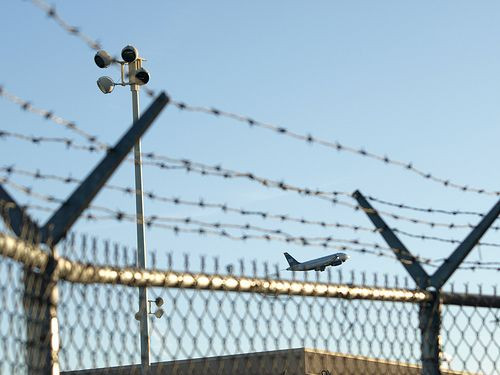TSA May Let You Carry Marijuana On Board Depending On Flight

The Transportation Security Administration (TSA) may allow passengers to bring both medical and recreational marijuana on board flights depending on where they are flying and what the law allows in the departing and arriving states.
Since the TSA is a federal agency, it does not involve itself with state-issued marijuana laws, such as the legalizations that recently occurred in Colorado and Washington. And while flying with any amount of marijuana is still considered illegal, the current protocol for agents who find marijuana during the normal screening process is to defer to law enforcement officials. If the person can show sufficient proof of medical use, or is flying between weed-friendly states, oftentimes officials will let it slide.
“I hear reports from people flying from one medical use site to another or flying from one part of California to another and they generally report that if they carry their authorization, they simply show the letter and are sent on their way and are allowed to keep their medicine,” Keith Stroup, an attorney and founder of the National Organization for the Reform of Marijuana Laws, told Lawyers.
Testing the law’s enforcement is still risky, however, as the stereotypical grumpy agent may decide to exercise his right as a federal employee and arrest you. “Even if an item is generally permitted, it may be subject to additional screening or not allowed through the checkpoint if it triggers an alarm during the screening process, appears to have been tampered with, or poses other security concerns,” states the TSA’s website. “The final decision rests with TSA on whether to allow any items on the plane.”
The move to let marijuana on airplanes is most likely a reflection of the loosening drug laws across the country, if only hesitantly. According to Stroup, it’s a step in the right direction — a departure from the TSA’s apparent affinity for dealings outside its jurisdiction.
“I’m delighted to hear that because I think it shows that TSA primarily is acting as it was intended when it was established, to protect all of us when we travel on the airlines and to thwart terrorists,” Stroup said. “It is not supposed to be an anti-drug agency.”
The reports of passenger success in bringing marijuana on planes have been mostly anecdotal, which makes it hard to keep track of the TSA’s behavior patterns. People who use medical marijuana for chronic headaches or back pain, for instance, are still taking a sizable risk in admitting to carrying the drug. Even in states that permit its consumption, the final say rests with the agent.
It’s only until the federal laws loosen, Stroup argues, that people who use marijuana for medical purposes can feel safe openly admitting to its presence.
“What nobody feels 100 percent comfortable with is it’s a grey zone you’re going through. It’s technically still illegal even though they aren’t enforcing it very strongly,” he said, still conceding he’s partially optimistic about the new leniency. “I’m glad to see there’s a little give in the system but obviously at some point we need to remove marijuana from federal law so this is not an issue.”
Published by Medicaldaily.com



























